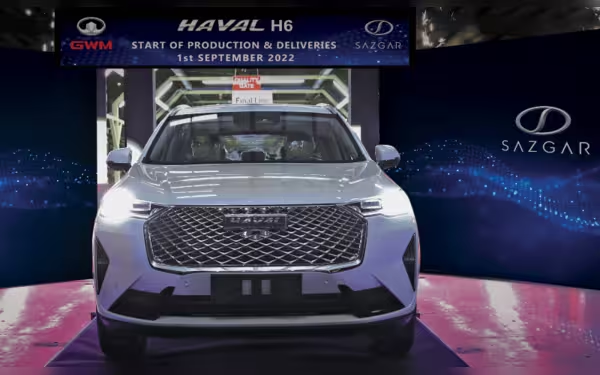Saturday, November 16, 2024 05:34 PM
Sazgar To Launch New Energy Vehicles In Pakistan
- Sazgar plans Rs4.5 billion investment for NEVs.
- BYD explores electric vehicle potential in Pakistan.
- New energy vehicles aim to reduce emissions and fuel costs.
 Image Credits: dawn.com
Image Credits: dawn.comSazgar Engineering plans to introduce new energy vehicles in Pakistan next year, investing Rs4.5 billion to enhance production capabilities.
In recent developments within the automotive industry, Sazgar Engineering Works Limited has announced its ambitious plans to introduce new energy vehicles (NEVs) in Pakistan next year. This move comes at a time when the global shift towards sustainable transportation is gaining momentum, and countries are increasingly looking for eco-friendly alternatives to traditional fuel-powered vehicles. Sazgar, known for its innovative approach, aims to contribute to this green revolution by rolling out vehicles that are not only efficient but also environmentally friendly.
The board of Sazgar has approved an estimated expansion cost of Rs4.5 billion, which will be financed through the company’s internal cash resources, excluding land costs. This significant investment underscores the company’s commitment to enhancing its production capabilities and meeting the growing demand for electric vehicles (EVs) in the region. The decision reflects a broader trend in the automotive sector, where manufacturers are racing to develop and deploy electric models to cater to an increasingly eco-conscious consumer base.
Moreover, the interest in electric vehicles is not limited to local manufacturers. China’s electric vehicle leader, BYD, has also announced plans to test the potential of EVs in Pakistan. This collaboration could pave the way for technological advancements and knowledge transfer, further bolstering the local automotive industry. The entry of established players like BYD into the Pakistani market signifies a growing recognition of the country’s potential as a hub for electric vehicle production and sales.
As Sazgar prepares to launch its new energy vehicles, it is essential to consider the implications of this shift for consumers and the environment. The introduction of NEVs could lead to reduced emissions, lower fuel costs, and a decrease in the country’s reliance on imported fossil fuels. Additionally, the expansion of the electric vehicle market could create new job opportunities and stimulate economic growth in the region.
Sazgar’s initiative to roll out new energy vehicles next year is a promising step towards a more sustainable future for Pakistan’s automotive industry. As the world moves towards greener alternatives, the success of such ventures will depend on consumer acceptance, government support, and the establishment of necessary infrastructure. The journey towards a cleaner environment is a collective effort, and with companies like Sazgar leading the charge, there is hope for a brighter, more sustainable future.













